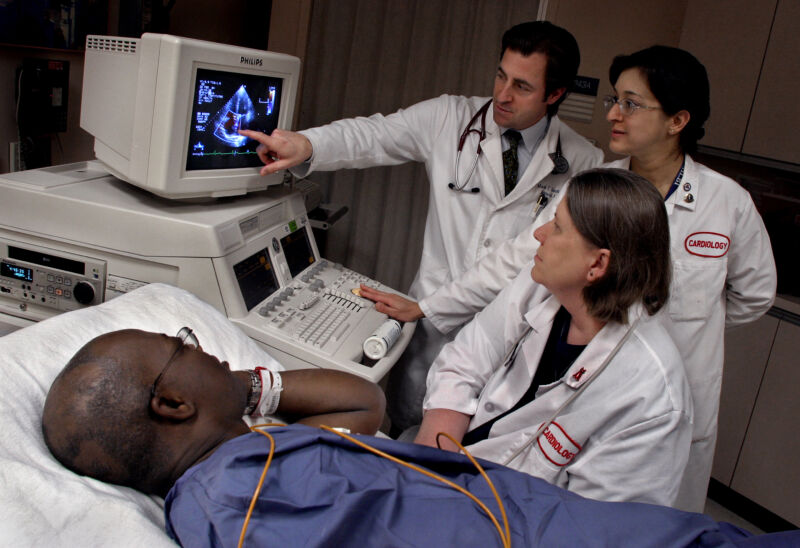
Enlarge / Richard Watkins,49, (in bed) is suffering from complications caused by Sickle cell disease. (credit: Washington Post/Getty Images)
Gene therapy has had a long and sometimes difficult history. Plenty of human genetic disorders can be traced to problems with a single gene, and that makes them a tempting target for correction. But someone died in a very early gene-therapy trial, which set the entire field back considerably. And, despite a far more cautious approach, the risks are still considerable, as two deaths during a trial occurred just this year.
But for researchers in the field, and those suffering from genetic diseases, this week provides some hope that the field’s long-delayed promise might eventually be met. At a virtual scientific conference, a group presented the results of a large safety trial that saw 50 of 52 patients able to discontinue treatments for hemophilia. And a separate paper describes the use of CRISPR gene-editing and a blood stem cell transplant to successfully treat patients with sickle cell anemia or a related disorder.
Restoring clotting
The hemophilia trial was typical of most early efforts at gene therapy. In this case, the disease is caused by a defect in a single gene, so providing cells with a new copy will correct the problem. And, since the protein that’s encoded by that gene circulates in the blood, you don’t have to target a small and potentially difficult-to-access population of cells in order to correct things—targeting a new copy of the gene to any cells that can export proteins to the bloodstream will work.
Read 15 remaining paragraphs | Comments
Source: Ars Technica – New human gene-therapy trials tackle sickle cell, hemophilia
